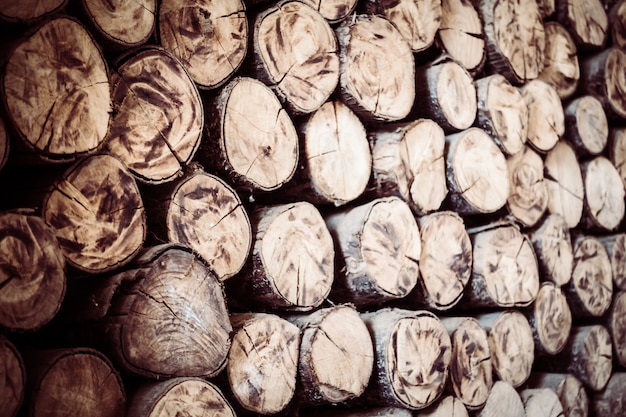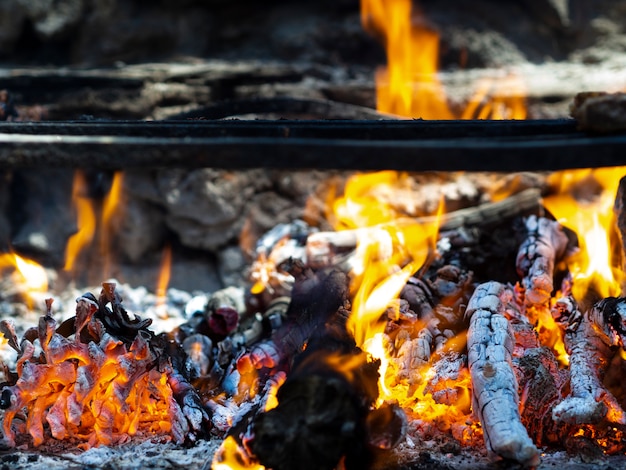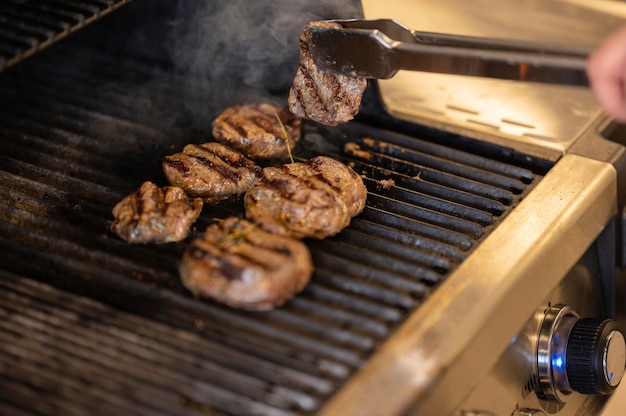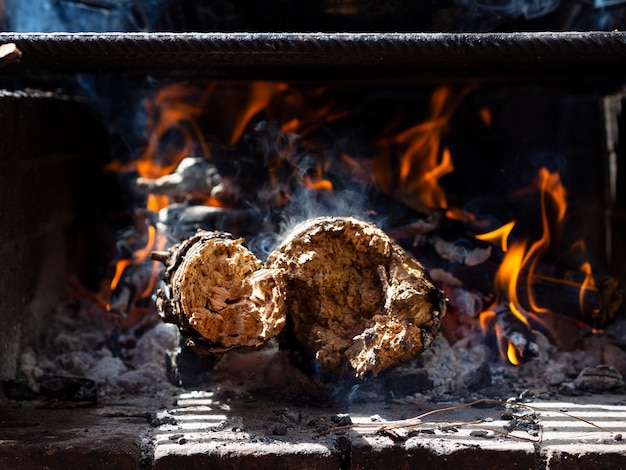Do pellet grills put off carbon monoxide?
When it comes to grilling, safety should always be a top priority. One concern that often arises is whether pellet grills emit carbon monoxide. Carbon monoxide is a colorless and odorless gas that can be highly dangerous if inhaled in large quantities. In this article, we will explore the topic of pellet grills and their potential for carbon monoxide emissions.
Understanding pellet grills
Pellet grills have gained popularity in recent years for their convenience and ability to produce delicious, smoky flavors. These grills rely on wood pellets as their fuel source, which are automatically fed into a fire pot by an electric auger. The pellets are ignited by a heating element, creating the heat and smoke necessary for grilling.
Unlike traditional charcoal or gas grills, pellet grills operate using an indirect cooking method. This means that the food is not exposed to direct flames, but instead cooked through convection and radiant heat. The combustion process of the wood pellets produces both carbon dioxide (CO2) and water vapor, but what about carbon monoxide?
The truth about carbon monoxide emissions
While the combustion of any fuel can potentially produce carbon monoxide, pellet grills are generally considered safe in terms of carbon monoxide emissions. The reason for this lies in the efficient combustion process of wood pellets.
Wood pellets are specifically designed to burn cleanly and efficiently, with minimal byproducts such as carbon monoxide. When properly ignited and burned at the recommended temperature range, pellet grills produce very low levels of carbon monoxide that are well below the safety limits set by regulatory bodies.
“According to the Hearth, Patio, and Barbecue Association (HPBA), pellet grills produce an average of 0.39 grams of carbon monoxide per hour of operation. This is significantly lower compared to gas or charcoal grills.”
It’s important to note that carbon monoxide emissions can increase if a pellet grill is not functioning properly or is used in an enclosed space without proper ventilation. Like any appliance, regular maintenance and adherence to safety guidelines are crucial.
Safe grilling practices
While pellet grills are generally safe, it’s always wise to follow some essential safety precautions when grilling:
- Use your pellet grill outdoors: Always use your grill in a well-ventilated outdoor area, away from any structures or flammable materials.
- Keep a safe distance: Maintain a safe distance between the grill and any surrounding objects, such as walls or furniture.
- Regular maintenance: Clean your grill regularly and ensure that all components are in good working condition.
- Follow manufacturer instructions: Always follow the specific safety guidelines provided by the manufacturer for your pellet grill.
By following these safety tips and using your pellet grill responsibly, you can enjoy your outdoor cooking experience with peace of mind.
Do Pellet Grills Give Off a Lot of Smoke?
One common question among BBQ enthusiasts in the UK is whether pellet grills give off a lot of smoke. The answer is, it depends. While pellet grills do produce smoke, the amount can vary depending on several factors.
The Type and Quality of Pellets
The type and quality of pellets used in the grill play a significant role in smoke production. Hardwood pellets, such as oak, hickory, or mesquite, tend to produce more smoke compared to fruitwood pellets like apple or cherry. Additionally, the moisture content of the pellets can affect smoke production. Dryer pellets generally produce more smoke.
Cooking Temperature and Duration
The cooking temperature and duration also impact smoke production. Lower temperatures and longer cooking times allow for more smoke to be produced. This is because the pellets burn slower and produce smoke throughout the cooking process. However, at higher temperatures, the combustion process is quicker, resulting in less smoke.
Airflow Control
Another factor that affects smoke production is the control of airflow in the grill. Pellet grills typically have mechanisms to regulate the airflow, which can be adjusted to enhance or reduce smoke production. Opening the vents or adjusting the dampers can increase airflow and result in more smoke, while closing them can reduce smoke.
It’s important to note that excessive smoke can impart an unpleasant taste to your food and potentially cause health concerns. It’s always recommended to follow the manufacturer’s guidelines and find a balance that suits your preferences.
“Finding the right balance of smoke production is key to achieving delicious BBQ flavors without overwhelming the food with excessive smoke.”
If you’re concerned about smoke production, here are a few tips:
- Use fruitwood pellets or blend them with hardwood pellets for a milder smoke flavor.
- Ensure the pellets are dry before use to reduce excessive smoke.
- Experiment with adjusting the airflow control to find the desired smoke level.
In conclusion, pellet grills do give off smoke, but the amount can be controlled through various factors like the type of pellets used, cooking temperature, and airflow control. Finding the right balance is crucial to achieving the perfect smoke flavor in your BBQ dishes.
Is it Safe to Leave a Pellet Grill Unattended?
Many UK homeowners are turning to pellet grills for their outdoor cooking needs. These innovative grills use wood pellets as fuel, providing a smoky flavor to your grilled dishes. However, a common concern among grill enthusiasts is whether it is safe to leave a pellet grill unattended.
Fuel Safety
Pellet grills have a firebox where the wood pellets are burned to produce heat and smoke. Unlike traditional charcoal grills, pellet grills have an automated system that controls the fuel supply and temperature. This eliminates the need for constant monitoring and makes them relatively safe to leave unattended for short periods of time.
Temperature Control
Pellet grills feature a digital controller that regulates the temperature. Once you set the desired temperature, the controller automatically adjusts the fuel supply and air flow to maintain it. This means you can safely leave your pellet grill unattended without worrying about flare-ups or temperature spikes.
Safety Precautions
While leaving a pellet grill unattended is generally safe, it is important to take some precautions to ensure safety:
- Clear the surrounding area: Make sure there are no flammable materials near the grill, such as leaves or gas cylinders.
- Use a grill cover: When not in use, cover your grill with a suitable cover to protect it from moisture and debris.
- Regular maintenance: Keep your pellet grill clean and well-maintained to prevent any malfunctions that could lead to safety hazards.
“Pellet grills have become popular among barbecue enthusiasts due to their convenience and ability to deliver delicious smoky flavors.”
Can you burn charcoal in a pellet grill?
One common question that BBQ enthusiasts often ask is whether it is possible to burn charcoal in a pellet grill. The answer to this question is both yes and no, depending on the type of pellet grill you have.
Pellet Grill Basics
A pellet grill, also known as a pellet smoker, is a popular outdoor cooking appliance that uses wood pellets as fuel. These grills work by automatically feeding the wood pellets into a heating element, which then produces smoke and heat for cooking.
While pellet grills are primarily designed to use wood pellets, some models have the option to use charcoal as well. These grills usually come with a separate charcoal tray that can be inserted into the grill, allowing you to burn charcoal alongside wood pellets.
Benefits of Using Charcoal in a Pellet Grill
Using charcoal in a pellet grill can provide several benefits for BBQ enthusiasts. Firstly, charcoal can add a distinct smoky flavor to your food that some people prefer over the flavor produced by wood pellets alone.
Additionally, charcoal burns at a higher temperature than wood pellets, which can be advantageous when you need to sear or cook food quickly. Charcoal also tends to emit less smoke, making it a suitable option for those who prefer a cleaner grilling experience.
Considerations Before Using Charcoal in a Pellet Grill
Before using charcoal in your pellet grill, it is important to check the manufacturer’s instructions and ensure that your specific model supports charcoal usage. Some pellet grills may not have the necessary components or design features to safely accommodate charcoal.
Using charcoal in a pellet grill can also affect the overall cooking experience. For example, charcoal may require more frequent monitoring and adjustments compared to wood pellets. Additionally, the additional heat generated by charcoal can impact the cooking time and temperature control.
It is worth noting that using charcoal in a pellet grill may void the warranty, so it’s crucial to weigh the benefits and risks before proceeding. Always consult the manufacturer’s guidelines and seek professional advice if you are unsure.
In conclusion, while most pellet grills are designed to use wood pellets as fuel, some models do offer the option to burn charcoal alongside wood pellets. However, it is essential to consider the compatibility, potential impact on cooking experience, and warranty implications before using charcoal in your pellet grill.
Do wood pellets need to be soaked?
Wood pellets are a popular choice for fuel in smokers and grills due to their efficiency and clean burn. However, there is often a debate about whether or not they need to be soaked before use. So, do wood pellets need to be soaked? The answer is no, soaking wood pellets is not necessary for most cooking applications.
Why soaking wood pellets may not be necessary
Wood pellets are designed to burn cleanly and efficiently without the need for soaking. They are made from compressed sawdust, which has already been dried during the manufacturing process. Soaking wood pellets can reduce their efficiency and make them burn less consistently. The moisture from soaking can also create steam, which can affect the temperature and smoke production in the smoker or grill.
When soaking wood pellets may be beneficial
While soaking wood pellets is not necessary, there may be some situations where it can be beneficial. For example, if you are using a smoker and want to add extra moisture to the cooking environment, soaking wood pellets can help create more steam. This can be useful when cooking certain meats that benefit from a moist cooking environment, such as pork shoulder or brisket.
Remember, soaking wood pellets is a personal preference and may vary depending on your specific cooking needs and equipment.
How to properly use wood pellets without soaking
To use wood pellets without soaking, simply place them directly into the hopper or firebox of your smoker or grill. Make sure to follow the manufacturer’s instructions for your specific model. Preheat your smoker or grill to the desired temperature, then add your food and let the wood pellets do their job. The dry wood pellets will ignite and produce the necessary smoke for flavoring your food.
It’s important to note that the type of wood pellets you choose can also impact the flavor of your food. There are a variety of wood flavors available, such as hickory, mesquite, and apple, each providing a unique taste to your dishes. Experiment with different flavors to find your favorite.
In conclusion, while soaking wood pellets may have some benefits in certain situations, it is generally not necessary. Wood pellets are designed to be used dry and will provide efficient and consistent heat and smoke when used properly. Enjoy experimenting with different wood flavors and techniques to enhance your grilling and smoking experience.
Conclusion
In conclusion, it is generally safe to leave a pellet grill unattended for short periods of time. The automated fuel and temperature control systems reduce the risk of accidents and ensure consistent cooking results. However, it is important to follow the necessary safety precautions and use common sense to prevent any mishaps. By doing so, you can enjoy the convenience and delicious flavors that pellet grills have to offer without compromising on safety.



